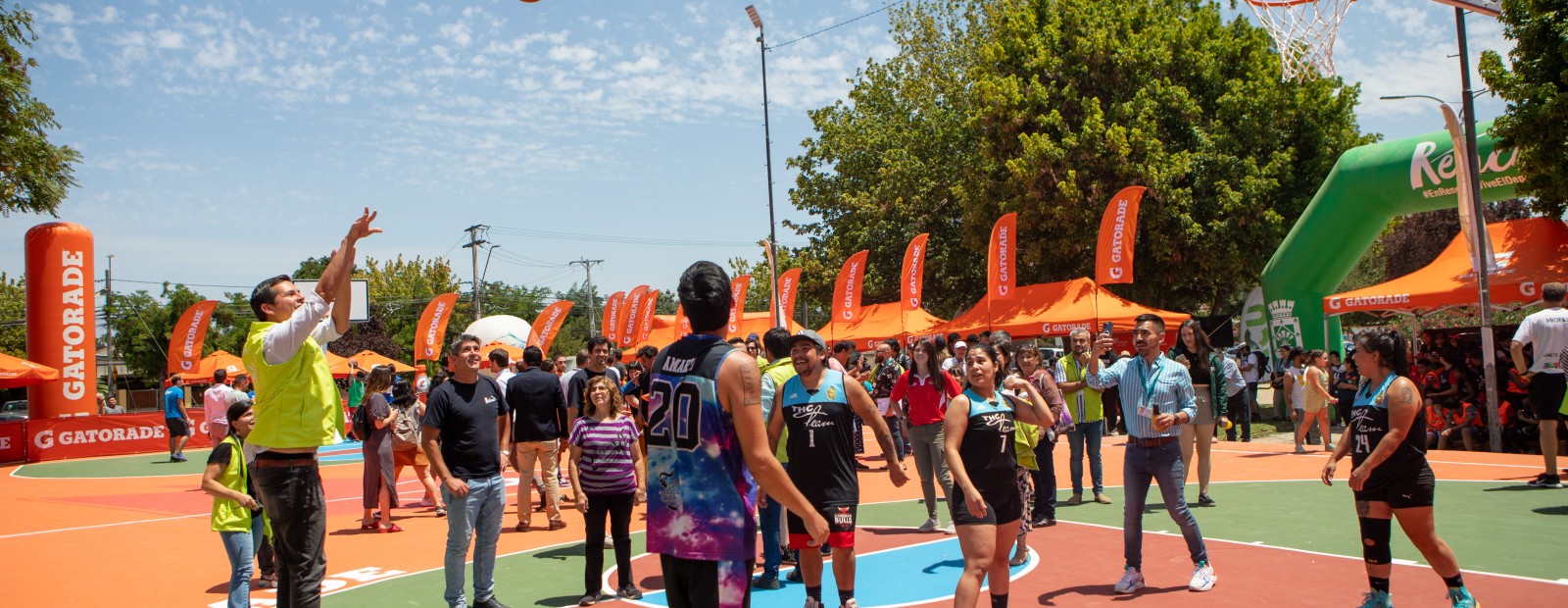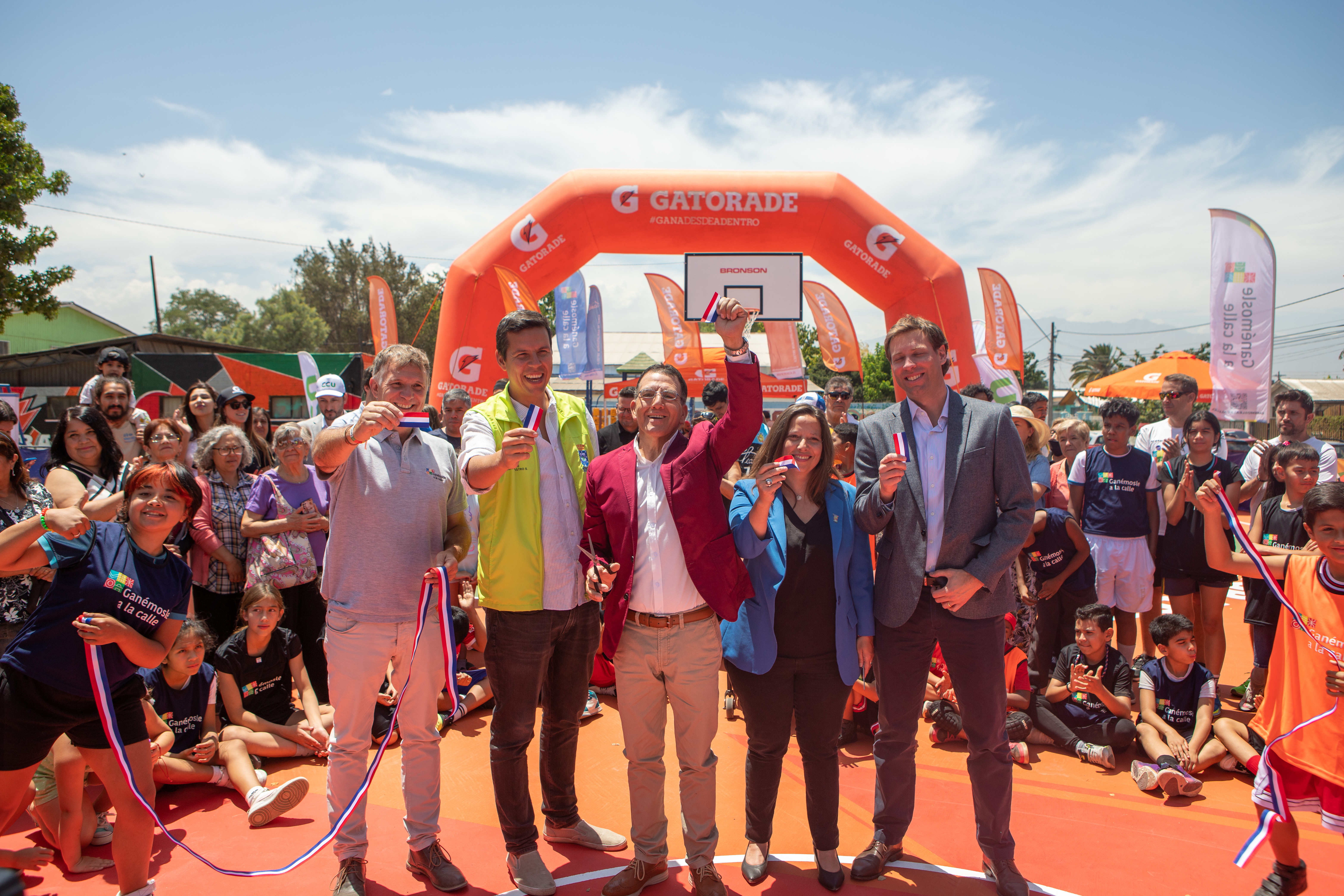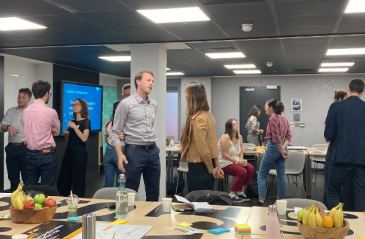
The power of storytelling in climate leadership


@Muni_Renca's Innovation Factory showcases the power of public-private partnerships in driving sustainable development. From urban transformation to environmental initiatives, it's a model worth emulating worldwide. #SustainableDevelopment #RencaInnovation
Share articleThe leadership of Mayor @cn_castro and the innovative approach of The Renca Innovation Factory have turned challenges into opportunities. With a focus on sustainability and social transformation, @Muni_Renca sets the bar high for inclusive development. #Leadership #RencaModel
Share article@Muni_Renca's journey from stigma to success highlights the importance of community empowerment and public innovation. Through The Renca Innovation Factory, partnerships thrive, creating a brighter future for all. #CommunityEmpowerment #RencaPride
Share articleWe put our vision for government into practice through learning partner projects that align with our values and help reimagine government so that it works for everyone.
Una versión de este artículo en español está disponible aquí.
The commune of Renca in Santiago, Chile, has rapidly gained national and international recognition as an exemplary case of development and transformation, supporting a historically marginalized community from the city of Santiago to embark on a sustainable development path. A key element to this success has been the role of "La Fábrica de Renca" (Renca's Innovation Factory). Led by a lean professional unit, the development corporation implements public-private partnerships and international collaboration models to address the district's social, economic, and urban transformations in collaboration with other entities, with a strong focus on public innovation.

Nearly 500 acres of a new metropolitan park; an international jazz festival; free theatrical performances that gather more than fifty thousand people annually; the largest number of electric buses in the country; a 14% decrease in youth drug consumption, improved academic performance, educational infrastructure, and school coexistence according to all standardized measurements; 100,000 square meters of reclaimed green areas; 250 million dollars in public space improvements and community infrastructure; and 1,280 surveillance cameras operated by 240 citizen security committees. In just seven years, the Renca district has shifted from stigmatization to becoming a thriving and proud community.
Renca has experienced a remarkable transformation, transitioning from a stigmatized district in Santiago perceived as poor, peripheral, and dangerous to being recognized as an emblematic case of sustainable development, innovation, social justice, and strengthened democracy. Currently, Renca serves as an inspiration for other cities worldwide, especially in Latin America and the Caribbean, that are seeking to promote sustainable development even in vulnerable contexts.
-1709911709.jpg) Mayor Claudio Castro with Mauricio Celedón, Founder of the Teatro de Silencio (Theatre of Silence) in Renca.
Mayor Claudio Castro with Mauricio Celedón, Founder of the Teatro de Silencio (Theatre of Silence) in Renca.
This extraordinary change can be attributed to various factors. The leadership of Mayor Claudio Castro, an OECD Champion Mayor and one of Chile’s most prominent political figures, was crucial. Castro was reelected for a second term in 2021 with an impressive 92% of votes. Among the achievements of his administration is the creation of Renca’s Innovation Factory, which stands out—a small development corporation and innovation center funded by the municipality and chaired by the mayor but structured as a private organization. This entity has acted as a catalyst for local development, establishing partnerships with businesses, international organizations, civil society organizations, and the local community.
One of the most notable features of the corporation is its organizational model, how it establishes relationships, and how it leverages opportunities. The Innovation Factory’s model seeks to connect local problems and opportunities with various actors' capabilities, interests, and resources. Once a collaborative relationship is established, the challenge or opportunity is addressed together, involving municipal departments in the challenges and making them part of the solutions. To achieve this approach, the Innovation Factory organizes itself through relational ecosystems and development areas:
The organization connects three groups of actors to establish shared development goals and address challenges:
International ecosystem: International organizations, multilateral bodies, philanthropic groups, embassies, and other cities worldwide.
National ecosystem: Companies, universities, research centers, NGOs, and civil society organizations.
Community ecosystem: The local community of residents.
With each of these groups, the Innovation Factory establishes collaborative relationships and formulates projects.
Each relationship the Innovation Factory establishes, and every opportunity it seeks is evaluated from three crosscutting strategic development areas that support the district's transformation:
Sustainability: Focuses on decarbonization, water efficiency, and waste management goals.
Urban development: Prioritizes the redistribution of goods and services, attracting investments, and improving public spaces.
Modernization and digital transformation: Improves Renca’s internal processes and systems, fights against the digital gap, and builds capacities.
Various challenges are addressed by the municipality's technical teams through these capabilities, fostering interdepartmental cooperation and promoting changes in local government processes and structures to accelerate institutional modernization and public innovation.
Along with being an innovation center based on relationships and projects, Renca’s Innovation Factory has become a physical neighborhood hub, attracting thousands of neighbors to training programs in micro-entrepreneurship and digital manufacturing. It also hosts a community pharmacy and optician, allowing community members to save an average of 76% on medicines and optical lenses compared to regular market prices.
From this renewed urban space, the Innovation Factory drives four distinct transformation agendas, all focused on public innovation and sustainability:
Economic transformation: In collaboration with companies, consultants, universities, and non-governmental organizations, the Innovation Factory is driving the economic transformation of Renca through local job creation, training programs, and making productive connections. Notable initiatives include youth training in programming tools and the formation of the first Urban Logistics Community, where the leading logistics companies in the district coordinate to advance industry productivity and efficiency while simultaneously boosting local employment. Another noteworthy achievement of its administration is the establishment of the first Business Improvement District in Chile, where companies in the industrial sector formed a committee to collectively improve environmental conditions.
Urban transformation: Through partnerships with international organizations, local companies, NGOs, universities, and community members, the Innovation Factory has accelerated the district’s urban development process, attracted direct investments from the private sector, trained municipal teams, and reused industrial waste in public works. Notable achievements include a strategic alliance with the city of Evanston (USA) to advance sustainable urban development under the Cities Forward program, attracting direct investments from companies to improve green areas, and Renca's inclusion in the international "Urban Transition Mission" initiative, which supports 48 cities worldwide with advancing toward carbon neutrality.
Social transformation: The Innovation Factory has become a space that strengthens the social fabric of the local community, offering digital manufacturing training programs in partnership with the Metropolitan Technological University (UTEM), which has installed a manufacturing laboratory on-site and has trained over 500 residents in 3D modeling and printing, biomaterials experimentation, laser cutting, and more. Additionally, it hosts a health center, an optician, and a community pharmacy, creating an authentic hub that offers social services to the community. This new centralizing project was recognized with the AVONNI award, that highlights the country's leading innovations in the "New City" category. Moreover, one of its most significant social impacts has been to provide developmental opportunities for the youth by creating diverse sports and cultural activities (based on the Icelandic model of preventing youth alcohol and drug consumption). These include an international jazz festival, street theater performances, and family sports races.
Environmental transformation: La Fábrica has stood out in its work in the search for local solutions to a global problem such as the climate emergency, through the establishment of strategic international alliances and driving the environmental transformation of the commune. Renca has made an institutional commitment to advancing towards carbon neutrality. Joining the Race To Zero and then the Race To Resilience campaigns has opened a series of opportunities to position the commune through various international forums and instances, highlighting milestones in environmental transformation, such as the development of the Local Energy Strategy, the Local Climate Change Plan, the Local Sustainable Mobility Strategy, and the Local Water Strategy. Additionally, one of the major milestones was having the first communal inventory of greenhouse gas emissions (GHG) at the national level, allowing us to discover the magnitude of the climate challenges and the measurement of the environmental impact. All of the above has paved the way for us to create networks with international institutions and exchange experiences with key actors, such as ICLEI-Local Governments for Sustainability, the United Nations, the Inter-American Development Bank, the World Bank and the Development Bank for Latin America and the Caribbean - CAF, among others.
These and other initiatives driven by the Innovation Factory have placed Renca in the spotlight of numerous local and global actors, establishing itself as a relevant case for public innovation and igniting the interest of many stakeholders while becoming a reference and case study for Latin America and the Caribbean.
Furthermore, in today’s context, in which cities worldwide are challenged to reconcile economic growth with combating inequality and the climate crisis, Renca demonstrates that it is possible and can emerge from vulnerable contexts, not just from the global north. Renca is a notable example of sustainable development, innovation, and public-private partnership that places people at the center.
-1709911621.png)
In 2023, "La Fábrica de Renca" participated as an international expert in the "Earning Trust to Build Equitable and Healthy Societies" (ET4HS) program. The Earning Trust to Build Equitable and Healthy Societies (ET4HS) program is a dedicated initiative that addresses health disparities while increasing government legitimacy in U.S. communities.
Through an international network, participating cities and counties learn and source innovative solutions for health equity challenges, gaining access to proven approaches tailored to their context. The program fosters relationships between the government and the community, laying the foundation for more effective governance. Teams receive valuable resources to positively impact health outcomes, including workshops, community engagement exercises, and expert insights.
At the core of ET4HS is the concept of "earned legitimacy," recognizing that a government's credibility depends on trust and support from its people. By addressing complex social factors and systemic barriers that lead to disparities, local governments rebuild trust with affected communities, creating equitable and healthier societies for all.











